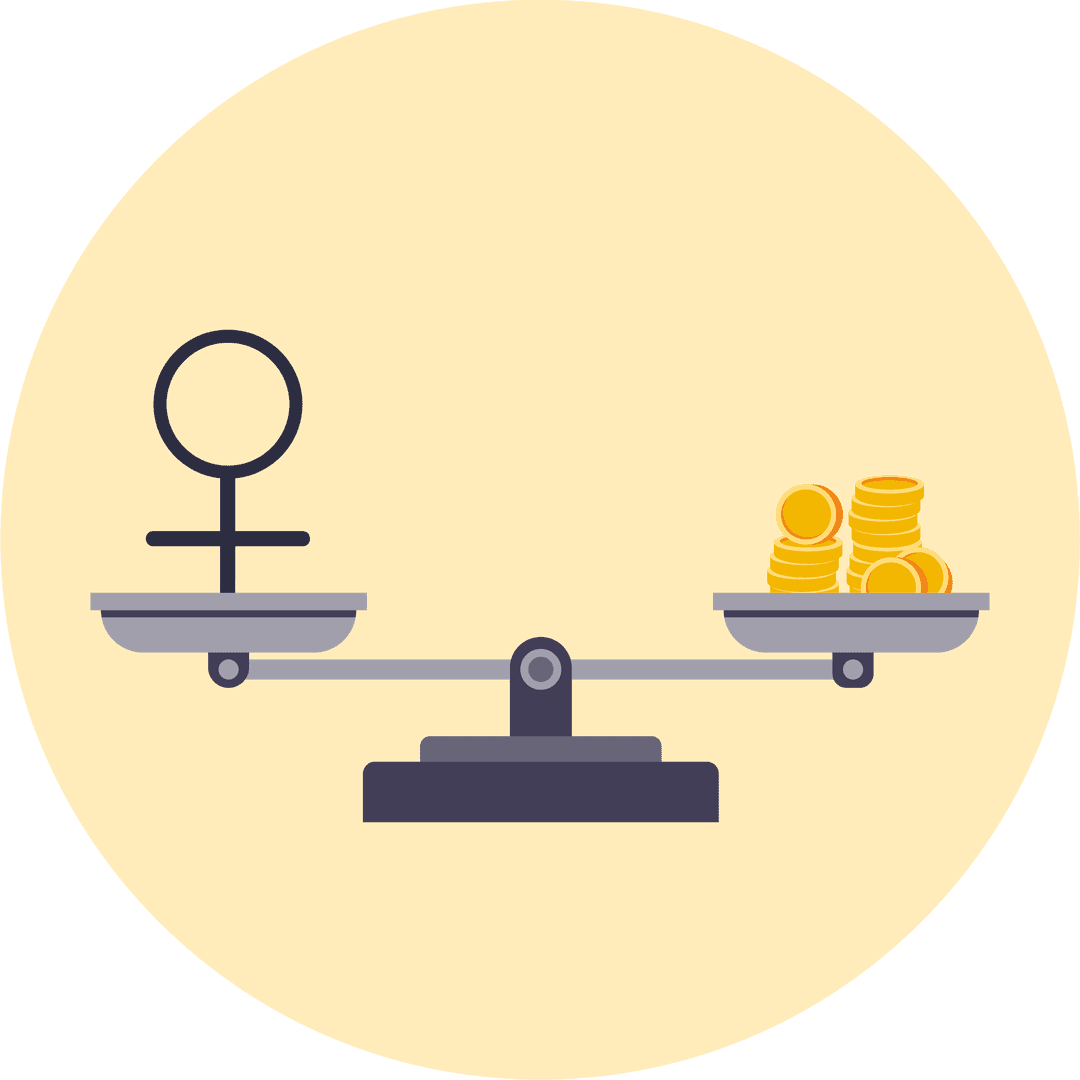
Advancing Economic Justice for Women
Globally women perform 12.5 billion hours of unpaid care work every day.
In the UK, the gender gap in annual earnings for young women aged 18-21 is currently 32.8% and for young women aged 22-29 is 19%. This is caused by a variety of factors, including workplace discrimination and the fact that women have to juggle both paid work and unpaid care work.
According to Oxfam, 3/4 of unpaid care work in the world is performed by women and girls. This adds up to 12.5 billion hours of unpaid care work every day, which, when valued at minimum wage, equals $10.8 trillion a year, more than three times the value of the global tech industry. The heavy burden of care work often leaves women time-poor, which further serves to perpetuate economic and gender inequalities. Even though care work is essential, it still remains fundamentally invisible and undervalued, often treated as “non-work”. In the UK, young women are 20% more likely than their male counterpart to be classified as “economically inactive”. However, this does not take into account the fact that young women are often caring for children or family members, performing household work and emotional labour. To be able to enter the workforce after becoming a parent, young women will pay between half and two-thirds of their average salary for a nursery place for children aged 0-2.
You can try the UN’s interactive learning tool to find out more about unpaid care work and why it matters.
Covid-19’s impact on Economic Justice for Women
The pandemic has increased demands for care and domestic work, but while both men and women have increased their unpaid workload, women are taking on the lion’s share. The UN Women report shows that 33% of women increased the amount of time spent on unpaid care work since the pandemic began. This is because chores like household cleaning to prevent infection are taking longer, and school closure has meant more hours are spent in childcare. Consequently, greater numbers of women leaving the labourforce. In Q2 of 2020, analysis of the labour market of 55 countries revealed that women were 1.7 times more likely than men to be outside the labour force. For women aged 25+, the unemployment rates increased from 5.5% to 7.7%. In 2020, 1 in 4 women considered leaving the workforce or downshifting their careers. Among these, mothers of young children were more likely to want to permanently leave the workforce.
The data clearly shows how women have been disproportionately affected by the Covid-19 crisis. Rather than continuing to advance at the usual slow-but-steady pace, women’s workplace equality has been set back by the pandemic. For this reason, it’s more important than ever to take action to advance economic justice for women.
Join our campaign
Now-u’s Economic Justice for Women campaign aims to raise awareness about economic injustice for women by driving institutional change, addressing gender stereotypes, and strengthening the capacity of organisations working on this issue.
For this reason, we’ve partnered with two amazing charities:
-
The Young Women’s Trust offers support to young women aged 18 to 30, who are living on low or no pay and want to build a better future. They campaign for equality in the workplace and conduct research into economic justice. You can find out more about the Young Women’s Trust and get involved here.
-
Women in Leadership is a grassroots, female-led charity that works with women and girls living in poverty. Their mission is to educate and empower rural women and girls and they offer free, interactive, rights based workshops in villages in Uganda.
Download the now-u app and join the campaign to learn more, take action and help our partners promote economic justice for women!

